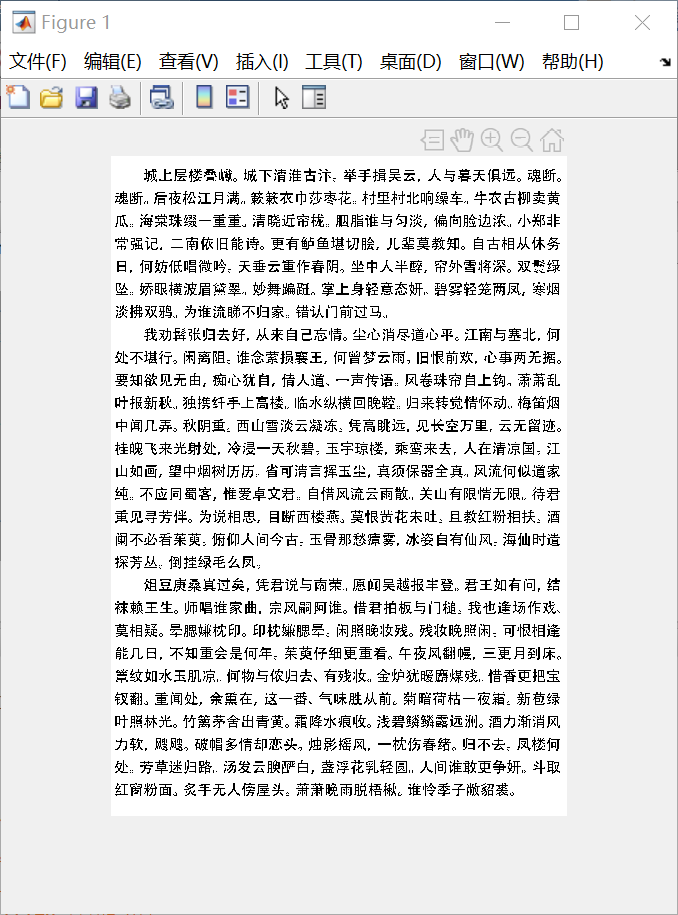1. Read all pictures
%A=imread('C:\Users\admin\Desktop\mathematical modeling\mathematical modeling\2013B\Annex 1\000.bmp');
%imshow(A);
file_path = 'C:\Users\admin\Desktop\mathematical modeling\mathematical modeling\2013B\Annex 1\';% Image Folder Path
img_path_list = dir(strcat(file_path,'*.bmp'));%Get all of the files in this folder jpg Format image
img_num = length(img_path_list);%Total number of captured images
image=cell(1,img_num);
if img_num > 0 %A qualified image
for j = 1:img_num %Read the image one by one
image_name = img_path_list(j).name;% Image name
image{j} = imread(strcat(file_path,image_name));
fprintf('%d %d %s\n',i,j,strcat(file_path,image_name));% Display the image name being processed
%Image Processing Elimination
end
end
%imshow(image);
2. Storage by Gray Value Matrix
0~255=>0/1
% Just one example
thresh=graythresh(image{1});% automatic threshold acquisition
tu = imbinarize(image{1},thresh2);% two value
Matrix1=tu;% transforms the two valued image into a matrix.
3. The rightmost of each note matches the leftmost of the rest
And the best matching exists in a two-dimensional table [2,19].
match=0;%Matching counting
right=zeros(2,19);%Line 1: The most matched number of strips; Line 2: the number of matches
%disp(Matrix(:,1));
for i = 1:img_num %Each note( i)It's a round trip.
for j=1:img_num %On the right side of each note and the rest( j)The left side matches once
if i==j %It's your turn to pair right and left, skip
continue
end
for k=1:1980 %1980 pixels in length
if Matrix{i}(k,72)==Matrix{j}(k,1)
match=match+1;
end
end
if match>right(2,i)
right(2,i)=match;
right(1,i)=j;
end
match=0;
end
end

4. Find the left-most note
for i=1:19
sum=0;
for j=1:1980
if Matrix{i}(j,1)==1
sum=sum+1;
end
end
if(sum>max)
max=sum;
leftest=i;
end
end
Five, splicing
Combine the two arrays into one. Define an empty array, such as A=[], and assign the two arrays to A in turn, as shown in the following example.
A=[]; a=[1 2]; b=[3 4];A=[A a];A =1 2
A=[A b]; A =1 2 3 4
next=leftest;
disp(leftest);
all=Matrix{next};
for i=1:18
next=right(1,next);
all=[all,Matrix{1,next}];
end
imshow(all);
Results Screenshot: